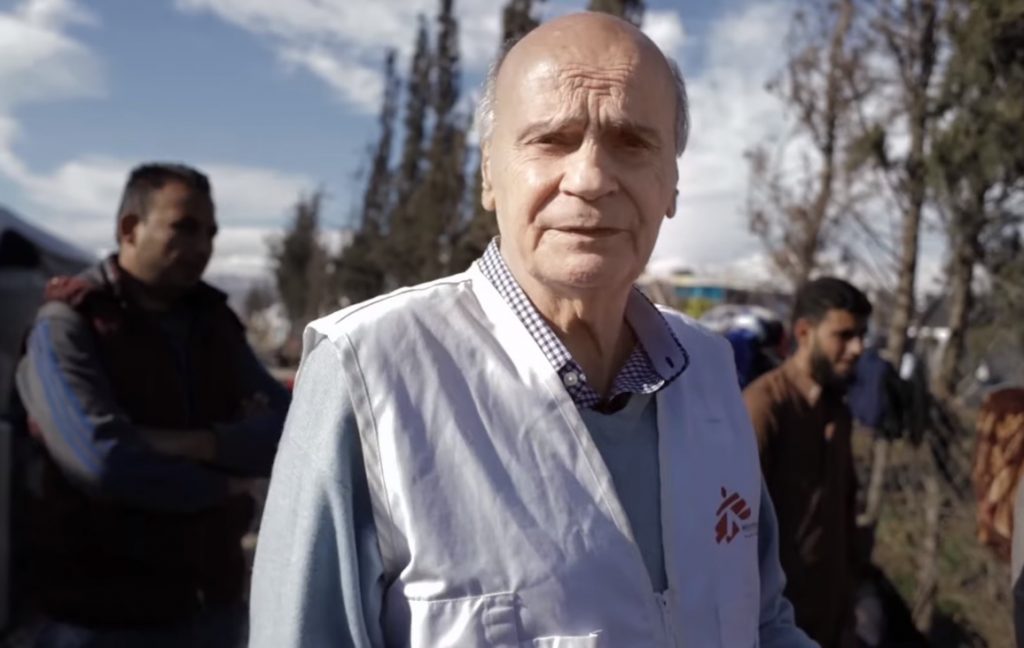São Paulo – For ten days, the Brazilian doctor Drauzio Varella followed the work of the international humanitarian organization Doctors Without Borders (MSF, acronym in French) in two Arab countries. The trip resulted in a documentary, “Drauzio em campo: Líbano e Jordânia” [Drauzio in the field: Lebanon and Jordan] available in three episodes since Wednesday (26) on MOV, the channel of Universo Online (UOL)’s new video production company. From January to February, the crew learned about the work the organization does in Beqaa Valley and Beirut, Lebanon, as well as Amman, Jordan. Varella is known in Brazil for addressing social and health themes.
MSF was founded in 1971 by French doctors and journalists. The idea for the video came from production company Uzumaki, which manages Drauzio’s social media and has been close with MSF since 2017, when it conducted a series of interviews with doctors from the organization. “The great motivator for us was drawing attention for the refugee issue. It’s a relevant theme in several countries around the world, including in Brazil, with the Venezuelans. Our intention was focusing the attention not only on MSF or Drauzio, who was there to tell the story, but on creating a narrative about the refugees,” Uzumaki audiovisual director Newman Costa said.

The travel itinerary included the refugee camp Abu Farris in the Lebanese region of Beqaa Valley, which houses approximately 280 families. The crews also passed through Majdal Anjar and Arsal, and visited an MSF hospital in Amman, Jordan, which specializes in reconstructive surgeries for victims of armed conflicts.
The first film set was Lebanon, where Doctors Without Borders worked amid armed conflicts for the first time in 1976. Due to the Syrian conflict which started in 2011, several air raids and land-based assaults against the civil population caused thousands of families to run away to Lebanon. The country has around 4.5 million inhabitants and shelters at least 1.5 million Syrian refugees.
“It’s the country with the world’s highest per capita refugee population. Despite not being rich, having a reasonable median income as well as its own problems, it has sheltered many refugees over the years, unlike other countries with access-denying policies,” said MSF Press Relations coordinator Paulo Braga, who joined the trip and assisted in contacting local professionals.
Braga explains that the huge contingent of refugees in the country presents many challenges for the local healthcare system. Therefore, MSF offers not only emergency medical care, but also the treatment for non-communicable diseases such as hypertension and diabetes. These are the patients Drauzio meets in one of the videos of the series.
Other theme the Brazilian doctor accompanies is mother and child health. Lebanon has 13 points of care, including hospitals and health centers. Only in 2018, the organization attended in 5,000 normal childbirths, 50,000 pediatric appointments, 95,000 appointments for non-communicable diseases, and handed 46,000 vaccine doses. Overall, it offers 231,000 appointments in Lebanon per year.

The Brazilian series portrays the work of MSF health promoters, who also go out in the field to see patients and give guidance on hygiene and sexual and reproductive health.
In Jordan, the Brazilian physician saw a hospital created in 2006 by the MSF to cater to casualties of war. “In that hospital they do reconstructive surgery. The doctors are orthopaedical surgeons, plastic surgeons, and they do prosthetics like the ones shown in the video. As the director herself explains, we have been getting lots of people from Syria, Yemen and Iraq,” said Braga.
A big challenge for the Brazilian team was to do the work with no preproduction, meeting each interviewee on the spot, breaking down cultural barriers with the help of MSF professionals. “I have lots of Lebanese friends here in Brazil, but before going on the trip I realized I didn’t know much about their country,” Drauzio said in the first video in the series. “You do soak up things like the cuisine, but we knew next to nothing about the culture. You must rid yourself of stereotypes. For example, your expectations about whether there’ll be fighting going on in the places we visited. We did get some culture shock, but we were made to feel welcome,” series director Costa told ANBA.
All services offered in MSF projects are free of charge. The documentary was enabled by the partnership with UOL, which released the contents exclusively. The production company team hopes to put out new similar contents. “’Drauzio em campo’ sets a precedent for portraying hi, out in the field in other places. We don’t know what the destination will be, but the thematic will permeate the figure of Drauzio, the doctor who deals with social issues,” concluded Costa.
Translated by Guilherme Miranda & Gabriel Pomerancblum




